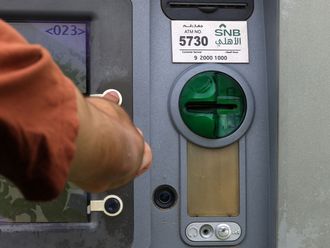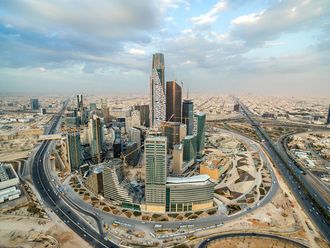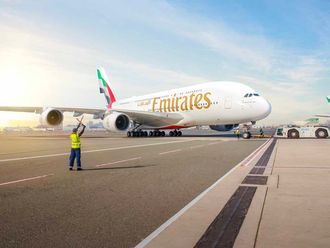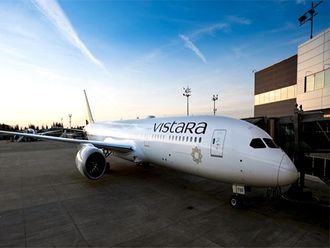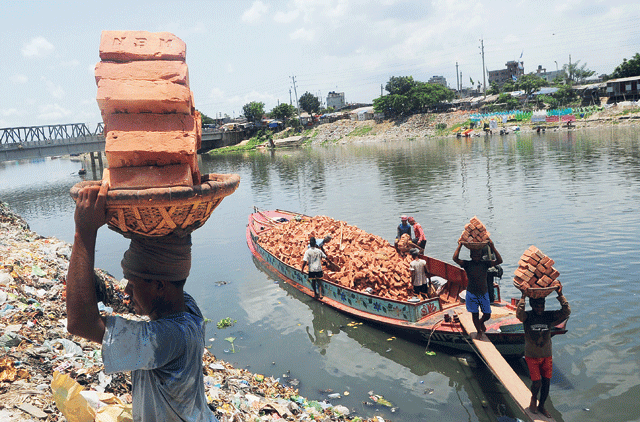
Dubai: The Bangladesh Government on Thursday proposed an ambitious 1.32 trillion taka (Dh0.06 trillion) budget for fiscal year 2010-11 starting July 1, with a target of achieving a 6.7 per cent growth in gross domestic product (GDP).
This is nearly 20 per cent higher than last year's budget, in which the government aims to fund about 70 per cent from domestic sources by expanding domestic capacity.
Finance Minister Abul Maal Abdul Muhith tabled the country's 39th budget since Bangladesh's independence in 1971, at the Jatiya Sangsad (the National Parliament) in style, for the first time through a power-point presentation, giving adequate attention to power generation.
Hampering
Due to a lack of a sufficient power supply in the face of rising demand that has been hampering social life, businesses and industrial development, the government has nearly doubled the allocation for power generation in the sector, amounting to 61.14 billion taka. Government services have also been moved online as part of the country's quest towards developing soft infrastructure under the ‘Digital Bangladesh' programme,
For the first time, the government has published a road map for the power and energy sectors with a five-year development road map that will see supply catching up with demand by 2012 with a planned 30 billion taka public-private partnership framework. The government has already set up a 16 billion taka Bangladesh Infrastructure Finance Fund (BIFF) to spearhead investment in these sectors to support the growth of the power-hungry economy.
While tabling the budget, Muhith said the economy has largely remained unaffected by the global financial crisis as workers' remittances continue to grow in double-digits to $10 billion (Dh36.7 billion) and foreign exchange reserves have crossed for the first time the $10 billion mark.
"Export earnings are on the rise since March 2010 and in April this has increased by 19 per cent. I am optimistic that this trend will continue in the remaining months of the current financial year as well as in the coming fiscal year," he told the parliament session boycotted by the Opposition.
Shaikh Abdul Karim, Senior Vice-President of Sharjah Islamic Bank, said: "Although the budget is very much a people-oriented and theoretically a very good document, the challenge lies in its implementation. I hope the government succeeds in implementing this."
Rural development
The government has pledged more than 30 per cent of the 385 billion taka Annual Development Programme in local government, rural development and agricultural sectors while 15.3 per cent has been allocated to power and energy sectors.
The social sector and rural economy has been given a clear priority to develop capacity that could reduce dependence on foreign aid, economists say.
Professor Abul Barakat, president of Bangladesh Economists' Association, termed it a "humanised budget".
"For the first time I have seen the government has clubbed the various economic sectors from a holistic point and tried to allocate resources accordingly," he said in his reaction. "For example, the agricultural sector has been integrated with rural development, an increase in agricultural research, development of agro-based industries and capacity building in the rural areas, these are inter-linked. Education, human resources, training, research and technical education has been clubbed together that will help the government to extract better results."
Iftekhar Ahmad, chief financial officer of the Qatar-based Ali Bin Ali Group, said: "We need to develop a national focus and prioritise the sectors which we will develop on a longer term basis. We cannot, be self-sufficient on everything, so we will be dependent on many sectors. So, the sectors, in which we can be self-sufficient, like the rice and poultry sectors, we need to make the import of raw materials for these sectors with a minimum tariff."
Budget at a glance
- Total Expenditure: 1.321 trillion taka
- Development Expenditure: 385 billion taka
- Revenue Expenditure: 752.23 billion taka
- Revenue Income: 928.47 billion taka
- Revenue Surplus: 176.17 billion taka





